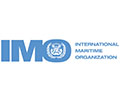
[ad_1]

The maritime industry and particularly ports are part of the solution towards decarbonizing the maritime sector and can contribute towards the UN goal of achieving clean and affordable energy, panelists told a side-event on ports, held during the United Nations-led Ministerial-level Thematic Forums (21-25 June) on energy action. The forums bring together key stakeholders virtually, to mobilize actions as a major milestone on the road to the UN-led High-level Dialogue on Energy in September 2021.
“There is a large capacity to improve energy sustainability in port activities, operations and management. Meaningful improvement can be achieved through investment of in renewable energy, clean technological solutions, automations and through partnership, capacity building and education,” said Nancy Karigithu, Principal Secretary, State Department for Maritime and Shipping in the Ministry of Transport, Infrastructure Housing and Urban Development, Kenya. She was speaking at the side event on “Uptake of Port Energy Efficient Technologies and Operations” (22 June).
The event was hosted by the Government of Kenya, through the State Department for Shipping and Maritime, in collaboration with IMO – which implements the European-Union funded Global MTCCs Network (GMN); and the Maritime Technology Cooperation Centre for Africa (MTCC Africa)..png)
MTCC Africa is part of the global GMN network, which unites four MTCCS across the globe. All MTCCS work in their regions to promotes technologies and operations to improve energy efficiency in the maritime sector to support the move towards a low-carbon future.
Lydia Ngugi, Head, MTCC Africa, highlighted the MTCC’s work with ports across Africa, to undertake emission baseline studies, support the uptake of energy efficient technologies and facilitate the implementation of IMO’s mandatory energy efficiency requirements.
IMO’s Gyorgyi Gurban took the opportunity to highlight how a range of IMO-executed global projects, including the GMN Project, the GHG SMART project and GreenVoyage2050 are supporting developing countries on the path towards decarbonization in the maritime sector. Related initiatives are supporting information-sharing (IMO-Singapore NextGEN) and looking at ways to address innovation needs (UNEP-IMO Innovation Forum) and to mobilize finance, particularly in developing countries, for the decarbonization of the maritime sector (IMO-EBRD-World Bank FIN-SMART roundtable).
Improved energy efficiency across the maritime sector – including ports – will support the achievement of UN Sustainable Goal 7, which, inter alia, has a target to double the global rate of improvement in energy efficiency and expand infrastructure and upgrade technology for supplying modern and sustainable energy services for all in developing countries.
Source: International Maritime Organization (IMO)
[ad_2]
This article has been posted as is from Source